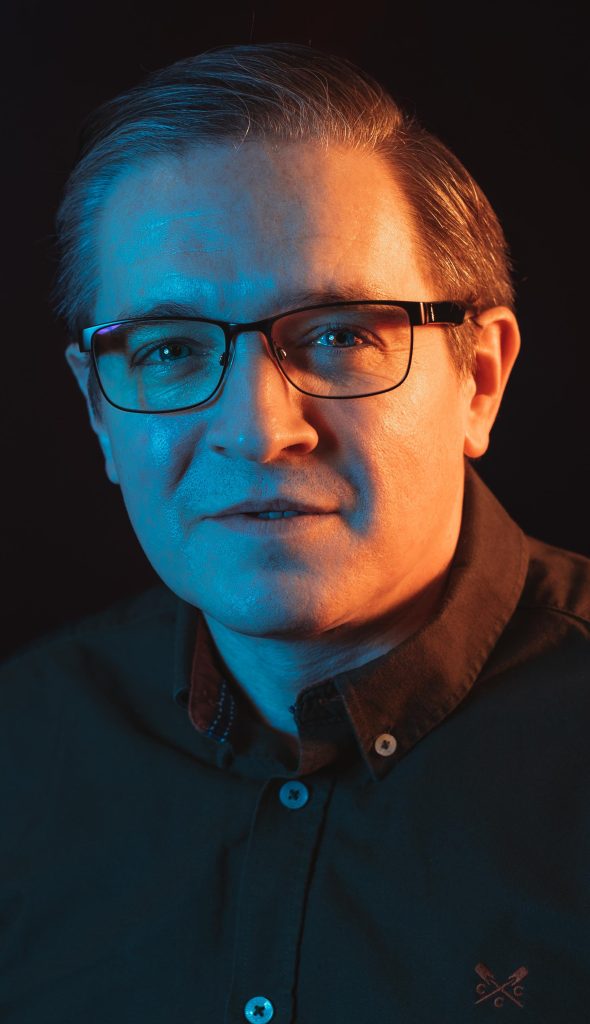Lee Wrall is the Co-founder and Director of Everything Tech – a Managed Service Provider (MSP). We speak to him about life inside and outside of the office.

What would you describe as your most memorable achievement in the cybersecurity industry?
When we moved every single one of our customers over to using Multi-Factor Authentication (MFA) as part of a planned shift, it was a massive moment. It involved training and deploying more than 5,000 active users to MFA over a period of three months – we did it because it was a huge leap forward in terms of security. I’d recommend MFA to any business as the starting point of their cybersecurity regime; it’s what every aspect of security begins with.
What first made you think of a career in cybersecurity?
I was working in the paper industry, literally working in a merchant’s like in the TV series The Office, but without a manager like David Brent! I knew the industry was dying and I didn’t want to be on the way out with it, so I turned my interest in systems into my profession.
What style of management philosophy do you employ with your current position?
I like to be very relaxed as a manager. I’m a big believer in letting people get on with their job and then asking for help, assistance or support if they need it. We have a very flat management structure at Everything Tech and as part of it I encourage all the members of our team to be honest and open.
What do you think is the current hot cybersecurity talking point?
Awareness training, or rather the lack of it, continues to be a massive part of the cybersecurity risk. The majority of the issues in the field come from the human who is sitting behind the keyboard and falling for the scams that arrive in their inbox.
How do you deal with stress and unwind outside the office?
I exercise a lot. Without access to a bike or a pair of running shoes, I’d have gone mad a very long time ago.
If you could go back and change one career decision, what would it be?
I would have got into IT about half a decade earlier than I did. Around that time, there was the potential to make massive amounts of money, certainly in the thousands a day bracket.
What do you currently identify as the major areas of investment in the cybersecurity industry?
Again, it needs to be about getting the basics right. Cybersecurity awareness and training in the awareness needs to be far more commonplace than it currently is. The SME sector needs to start putting more thought into IT training of all types and across the board.
Are there any differences in the way cybersecurity challenges need to be tackled in the different regions?
I don’t think so, because the issues that are caused by cyberthreats are universal whether the victim of an attack is based in Europe, the Middle East, Asia or the Americas. For the most part, users are simply not taking cybersecurity and the effects of it seriously enough and that needs to change.
What changes to your job role have you seen in the last year and how do you see these developing in the next 12 months?
Wow! Well, it’s obviously been a massive two years for Digital Transformation because of the pandemic. COVID-19 presented a huge uptake in people changing the way they work, with the hybrid model now seeming the overwhelmingly favoured way that things are going to be in the coming years. Obviously, hybrid working is here to stay and will develop over the coming years, but I think in the immediate future we need to work hard getting the workforce to catch up with the technological advancements. We’ve seen huge steps forward in technological improvement and for once the humans need to catch up. I see businesses investing heavily into IT training, a huge range of tools and technologies have been made available, but to people who have no idea how to use them.
What advice would you offer somebody aspiring to obtain a C-level position in the security industry?
I think the most important thing for them to have above any kind of qualification is experience. I see a lot of C-level IT directors that have never been in a technical role before. When you’re working at that kind of level, you need to have experience in pretty much every aspect of IT and the issues that it can throw up. Working in an MSP offers huge levels of experience as the exposure to technological challenges is amazing and non-stop.



